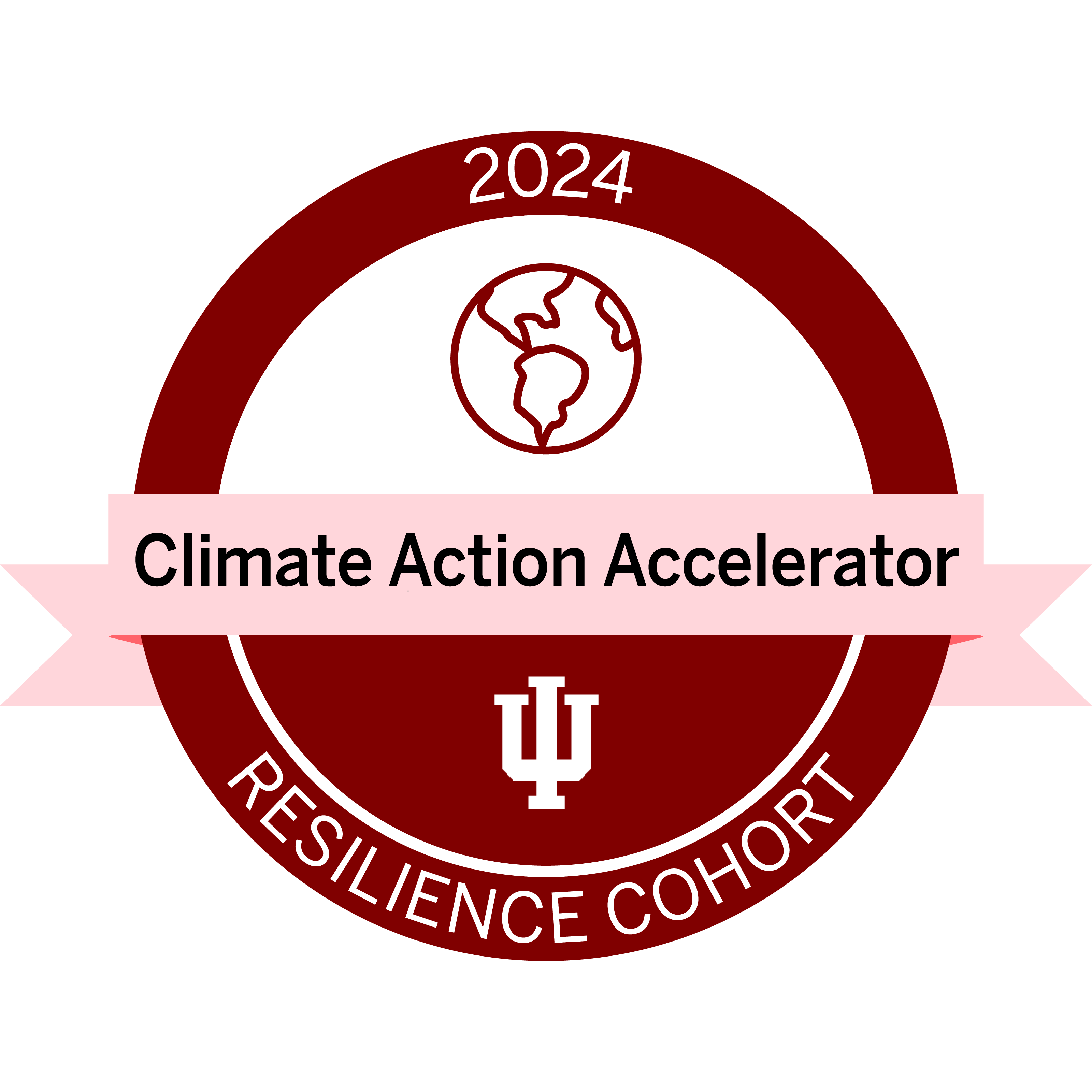When extreme weather strikes, cities need a way to quickly communicate with residents about public safety issues. Raising awareness among the public—vulnerable populations, in particular—about the benefits of opting into the local mass emergency alert system is a key first step to boosting community emergency preparedness.
This action is especially critical as the impacts of climate change become increasingly common in the Midwest, with events like flooding and extreme heat placing extra stress on electrical infrastructure and public services.
This summer, the City of Fort Wayne worked to boost the effectiveness of its mass emergency alert system, creating outreach materials targeting non-English speaking residents. The effort included public service announcements on the city’s emergency communication system translated into six different languages.
The outreach stemmed from Fort Wayne’s participation in the IU Environmental Resilience Institute’s 2024 Resilience Cohort program. As a member of the program’s climate action accelerator track, Fort Wayne received training in “Strategic Doing,” a framework for tackling complex problems, like community climate action, where solutions require extensive collaboration.
Hayleigh Keasling, a recent IU graduate and 2024 McKinney Climate Fellow, led the city’s participation this summer, identifying emergency management communication as a priority in the city’s climate action and adaptation plan that Strategic Doing could support right away.
To complete the project, she worked with the local public radio station manager, the Allen County Public Library, local cultural groups, the local fire department, and Keramida, an environment and sustainability consulting firm.
“Emergency outreach isn't something that people initially think of with climate change, but it's one of the most critical services to have in a time of crisis,” Keasling said. “We wanted to find a way to share emergency alerts with the entire community, including the elderly, the disabled, and refugee populations.
“As the daughter of a fourth-generation firefighter and having recently graduated with degrees in international studies and Middle Eastern languages and cultures, this project really merged my interests and will hopefully better position the community to deal with the impacts of climate change.”
Fort Wayne Energy and Sustainability Services Program Manager Jodi Leamon and Sustaining Fort Wayne Program Manager Kerry Korpela said that Keasling’s leadership made a huge difference in helping the city tackle its climate goals this summer.
“Hayleigh’s high-level communication skills were essential to the successful completion of her project,” Leamon said.
“I cannot overstate how much Hayleigh helped our city,” Korpela said. “Everything she did would have taken us a full year.”
About the Environmental Resilience Institute
Indiana University’s Environmental Resilience Institute connects a broad coalition of government, business, nonprofit, and community leaders to help Indiana and the Midwest better prepare for the challenges of environmental change. Together, we integrate research, education, and community to create environmental resilience and climate solutions—building a more sustainable, equitable, and prosperous future. Learn more at eri.iu.edu.




